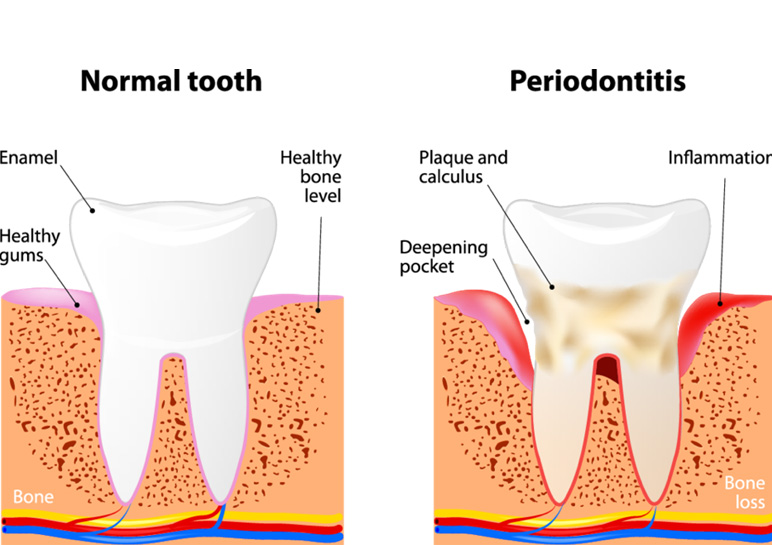Gum disease occurs when the tissue that surrounds and supports your teeth becomes infected. The symptoms of gum disease include inflammation, redness, bleeding, bad breath and sponginess of the gums. Brushing your teeth and gums twice daily can help prevent gum disease.
What causes gum disease?
Gum disease is caused by plaque, which is a sticky layer of germs that builds up on teeth. Plaque irritates the gums, causing them to bleed easily. If the plaque is not brushed off, it can become hard and further irritate the gums. Hardened plaque is called calculus or tartar. It can only be removed by a dental health professional.

Types of gum disease
There are 2 main types of gum disease: gingivitis and periodontitis.
Gingivitis is a mild form of gum disease. It occurs when the gums become red and swollen. The gums may also bleed easily when they are brushed. Bad breath is another sign of gum disease.
If gingivitis is not treated, it may cause a more severe form of gum disease called periodontitis. Periodontitis may cause the area of the gum closest to the tooth to become weak. Spaces may form between the tooth and the gum, and these may trap germs, leading to even more swelling. Over time, the bone supporting the teeth can be lost, causing the teeth to become loose and possibly fall out.
How do you prevent gum disease?
To prevent gum disease, gently brush your teeth and gums twice a day with a fluoride toothpaste. Even if it causes bleeding, brush twice a day.
You should also visit your dentist regularly for a check-up and cleaning.
Gum disease treatment
Your dentist will examine your teeth and may need to take x-rays. They will probably clean all the plaque and tartar from your teeth and advise you on how to clean your teeth well. You may also need the roots of your teeth treated to get rid of the germs.
You can help by cleaning your teeth well, not smoking and visiting your dentist regularly.
Can gum disease be cured?
Gingivitis can be cured without permanent damage. Periodontitis can’t be cured, but it can be controlled. The bone loss may be very slow or stopped.
When to see a dentist
You should see a dentist regularly for check-ups. See your dentist as soon as possible if you have swollen or bleeding gums, or if your teeth feel loose.



